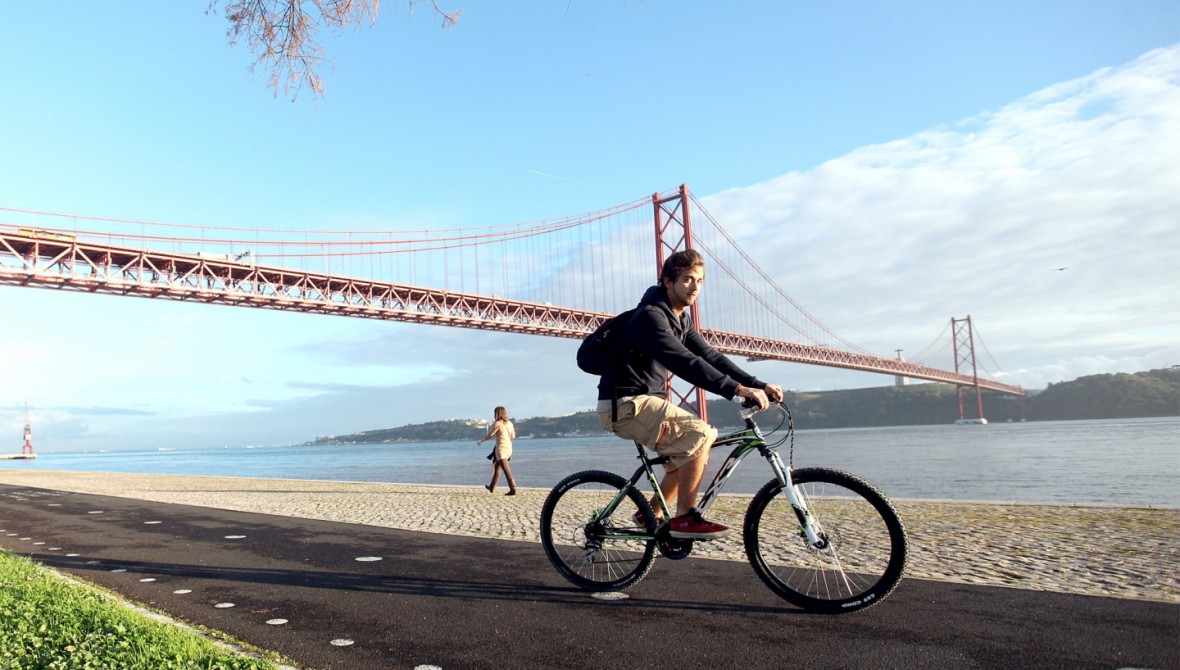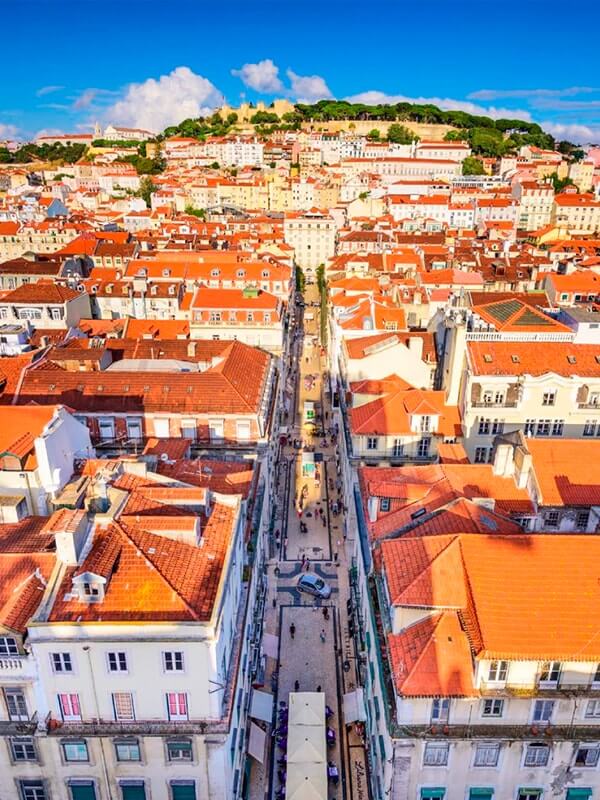
Pedaling on a day-to-day basis has become the most efficient way to walk in Lisbon

Bike paths are more common and frequent cyclists too. Lisbon is changing, users say, that they do not even know everyone they meet on bike paths. On the eve of World Bicycle Day, the DN saw how daily cyclists move around the capital.
Ten years ago, the bikers in Lisbon were so few that they all knew each other. "In 2009 a person passed and we waved. Nowadays it's ridiculous." The memory is of António Pedro, architect urbanist and one of the first frequent users of bicycles in the capital. With regard to the World Bicycle Day that is tomorrow and nine months after the launch of EMEL's shared bicycle system, the DN has learned who makes this their usual means of transport and why it is gaining fans.
"It's the most logical way to get around," almost all respondents to DN being by referring. The movement is done door to door and without the obstacles of traffic jams, parking problems or delays of public transport. The city has also changed a lot in recent years and has become more bike friendly. Still, there are steps to take to make it increasingly easier to opt for this medium as daily transportation. Bike paths are lacking (which City Hall wants to duplicate until 2021), but there is also a lack of understanding on the part of motorists in sharing the road with bicycles.
As for the myth of the hills, "in Lisbon, 74% of the streets have a flat or almost flat slope (up to 5%). The shortest path is not always the best when cycling. It's recommended to test the hypotheses, even if it takes a little longer, that time difference can be the difference between making the journey with effort or not, "says the doctoral student in Transportation Systems at Instituto Superior Técnico Rosa Félix.
In the case of António Pedro, his route includes two daily rises to Graça where he leaves his son in daycare. With no chance of getting around the climbs, he surrendered to electric bicycles. From Graça he goes to Alcântara.
David Vale already does 10 kilometers every day for work. "I only bought the electric because of the ascent, in the Ajuda area. I already did the route before, I just arrived sweating."
Ideal to escape traffic
David Vale went to do his doctorate in England in 2003 and that's when he started riding a bicycle. "I was in Newcastle and I thought the subway ticket was expensive and I started to think" I'm going to walk, "but it was that distance where we thought walking was a lot, but cycling was good. He bought a second hand, "very ordinary", bike but that's how he started the daily two-wheel-pedal link. He returned to Portugal in 2006, and wanted to continue to move in the same way he did in England. "The bicycle, from a selfish point of view, is the fastest way I have to get anywhere."
To see if it is possible to do these longer distances, the DN also decided to do a home-work route, in this case from the Estefânia area to the Torres de Lisboa. For this we used a bicycle of the electric GIRA system, and used MUBi's Bike Buddy service, in which an experienced cyclist, in this case António Pedro, helps a beginner to choose the best bike path for the distance they want to go.
The bicycle is thus, in the opinion of these experienced users, the ideal means of transport to travel distances up to 7.5 km, that is, half an hour. And they do not need to be electric.
Nuno Fernandes, 28, is doing his PhD in Geography and travels every day from São Bento to the University City. And despite the climbs you find on the courses, you have no problem pointing this out as a winning decision. "Public transport began to deteriorate, I was discontented and a friend of mine was starting to ride a bike and I thought maybe it was good for me too."
Since then he has improved his physical condition and makes every move in the city with his two-wheeled companion, whether it's to walk, to go to friends' houses or to the supermarket.
Meditation in movement
Cycling allows everyone to enjoy the city more. Not just the outdoors, the smells, the sounds, but also stop and enjoy "to be with friends on a terrace" or simply enjoy the late afternoon. In addition to that the path helps to disconnect from the work day.
Basically, what all the users who spoke to DN advocate is that choosing to use this means of transport is more than a purely environmental choice. In fact, none of them started for that reason. The convenience is the most mentioned, although all other positive impacts, are most welcome.
The city has also been adapting so that more and more locals and visitors will know about these impacts. Not only in the growth of bike paths, but also with the increase of shared bikes - EMEL's GIRA network.
“Super powerful” beginning
A change so big and in such a short time, although it started only in September, Joana can already notice differences. "I get lines of bicycles on bike lanes, which didn't happen two years ago. We're at the beginning and it's super powerful."
Lisbon is opening up to the dynamics of cycling, which can give you gains in terms of mobility, but there are still things to change. Cycle routes should continue to grow, but associations such as MUBi liked to have them built on the road as part of the road, that cyclists have incentives to buy electric bicycles, that there is more integration with public transport, so that more allow the transport of bicycles.
David Vale and António Pedro hope that in ten years' time this news report will no longer be necessary, a sign that the use of a bicycle has been trivialized. Until then, David will continue to delight his daughters with his bicycle. "I have to take them one at a time to school because they make it a point to get on a bike. It's a party when they arrive, both for them and their friends.
